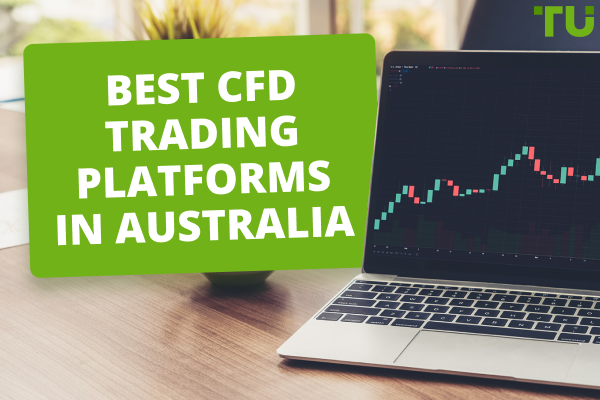Can I trade Forex in the USA?
Forex trading is available to any individual or institution in the US, provided they meet the necessary requirements. The US is one of the leading countries in Forex trading, with a large and diverse market. It is home to some of the world's largest Forex brokers and offers a wide range of trading opportunities for individuals and businesses. The regulatory scenario is also concrete for the US in terms of Forex trading, as the National Futures Association (NFA) and the Commodity Futures Trading Commission (CFTC) ensure that traders are protected and that the market is fair and transparent.
As with any investment, there are risks associated with Forex trading, but by doing your research and understanding the markets, you can be successful. With the right knowledge and tools, anyone can participate in the Forex market and potentially make profits from the fluctuation of currency prices. So, in this article, the experts at TU will discuss how you can start trading Forex and the best Forex trading platforms in the USA. We will also provide useful tips on the pros and cons of using a Forex broker in the USA.
How do I become a Forex trader in the USA?
Here are the steps you can take to become a Forex trader in the United States:
Obtain training and education in Forex trading. This can include taking classes, attending workshops and seminars, or self-study using online resources and educational materials.
Develop a thorough understanding of the Forex market, including how it works, the factors that affect currency values, and the different trading strategies and techniques used by successful traders.
Choose a licensed and regulated broker to open a Forex trading account with. It's essential to work with a reputable broker who can provide access to a secure and reliable trading platform and helpful resources and support for traders.
Complete any required licensing or certification processes. In some states, you may need to obtain a license or certification to legally trade Forex. Check with your state's regulatory agency for more information.
Practice trading using a demo account to gain experience and develop your skills without risking real money. Many brokers offer demo accounts that allow you to trade virtual currency using real market conditions.
Start trading with real money once you feel confident in your abilities and have a solid understanding of the risks involved. It's important to always manage your risk carefully and never trade more than you can afford to lose.
Continue to learn and stay up-to-date on the latest developments in the Forex market and any changes in regulations or industry practices that may affect your trading. This will help you to remain competitive and successful as a Forex trader.
Top 5 US Brokers
Some factors to consider when choosing a Forex broker include regulation, trading platform, fees, payment methods, and the availability of educational resources. Experts have identified these five Forex brokers as the most popular among US traders:
eToro
Oanda
Interactive Brokers
TD Ameritrade
Forex.com
1. eToro
eToro is regulated by the SEC and the FCA and offers a user-friendly platform and the ability to copy trades from other successful traders.
2. OANDA
OANDA is regulated by the National Futures Association (NFA) and the Commodity Futures Trading Commission (CFTC) and offers low spreads and no minimum deposit requirements.
3. Interactive Brokers
Interactive Brokers is regulated by the SEC, FCA, and CFTC and offers a wide range of trading tools and low fees.
4. TD Ameritrade
TD Ameritrade is regulated by the Securities and Exchange Commission (SEC), Financial Industry Regulatory Authority (FINRA), and CFTC and offers a wide range of trading tools and educational resources.
5. Forex.com
Forex.com is regulated by the NFA and the CFTC (among other regulatory bodies) and offers a wide range of currency pairs and educational resources.
It is important to thoroughly research and compare different brokers before making a decision on which one to use. It is also a good idea to read reviews and ask for recommendations from other traders.
Rules and Regulation
Licensing in the United States
Forex trading in the United States is strictly regulated by multiple agencies, including the Commodity Futures Trading Commission (CFTC) and the National Futures Association (NFA). These regulatory bodies oversee the Forex market, ensuring compliance with strict rules and standards to maintain market integrity and protect investors.
Investor protection in the United States
In the U.S., the CFTC and NFA regulations are aimed to protect investors by ensuring transparency, honesty, and fairness of Forex trading practices. Through comprehensive oversight and enforcement of regulatory frameworks, these agencies work diligently to prevent fraud, manipulation, and abusive practices, thereby creating a secure and trustworthy trading environment for investors.
Taxation in the United States
Profits derived from Forex trading activities are subject to taxation in the U.S. Forex traders must accurately report their trading gains as either ordinary income or capital gains, depending on the nature of their trading activity and holding period. Tax rates vary based on the trader's income tax bracket and whether the gains are categorized as short-term or long-term capital gains. Compliance with tax regulations is obligatory for traders to avoid potential legal consequences and ensure financial integrity.
US financial regulators
The financial regulatory system in the United States is complex and involves multiple agencies at the federal and state level. Here is a list of some of the major financial regulators in the US:
1. Securities and Exchange Commission (SEC)
The SEC is a federal agency that regulates the securities markets and protects investors from fraudulent activities.
2. Commodity Futures Trading Commission (CFTC)
The CFTC is a federal agency that regulates the futures and options markets.
3. Federal Reserve System (Fed)
The Fed is the central banking system of the United States and is responsible for implementing monetary policy and regulating banks.
4. Financial Industry Regulatory Authority (FINRA)
It is a financial organization that oversees the activities of brokerage firms and registered securities representatives.
5. National Futures Association (NFA)
The NFA is a self-regulatory organization that oversees the activities of futures and options firms and their associated persons.
6. State regulatory agencies
In addition to these federal regulators, each state has its own regulatory agencies that oversee financial institutions and professionals operating within the state.
How much money do you need to start trading Forex in the USA?
To start trading Forex in the United States, you must open a brokerage account with a reputable firm and deposit a minimum amount of capital. The exact amount can vary depending on the broker and the type of account you open, but many brokers will allow you to start trading with as little as $500 to $1,000. Some brokers may even offer micro or mini accounts that will enable you to trade smaller amounts of money, such as $10,000 or less. It's important to do your research and compare different brokers to find one that fits your needs and offers a minimum deposit that you are comfortable with.
Features of Forex trading in the USA: pros and cons
Forex trading in the United States has several features, both pros and cons, that are worth considering if you're considering starting to trade Forex in this country.
Some of the pros of Forex trading in the USA include:
Liquidity
According to research, the Forex market is the most liquid financial market in the world, with a daily trading volume of more than $6 trillion. This means that it's easy to enter and exit trades, and you can often execute trades at the price you want.
Leverage
Forex brokers in the USA typically offer high levels of leverage, which can be both a pro and a con. Leverage allows you to trade more money than you have in your account, potentially increasing your returns. However, it can also magnify your losses, so experts suggest using leverage carefully.
Round-the-clock trading
The Forex market is open 24 hours a day, five days a week, so you can trade whenever you want. This allows you to take advantage of trading opportunities whenever they arise, rather than being limited to trading during regular market hours.
Some of the cons of Forex trading in the USA include:
High costs
Forex trading can be expensive, especially if you trade frequently or use a lot of leverage. Brokers typically charge a spread (the difference between the bid and ask prices) and may charge a commission on each trade. These costs can add up quickly, especially if you trade often.
Volatility
The Forex market can be highly volatile, so prices can fluctuate rapidly and unexpectedly. This can be a good thing if you're able to capitalize on the volatility, but it can also be a risk if you're not prepared for sudden price changes.
Overall, Forex trading in the USA has pros and cons, and it's important to consider these factors carefully before you start trading.
FAQ
Is Forex trading legal in the USA?
Yes, Forex trading is legal in the USA.
Can I trade Forex with a US broker?
Yes, you can trade Forex with a US broker, provided the broker is registered with the appropriate regulatory bodies and adheres to the relevant laws and regulations. Forex brokers are regulated by the National Futures Association (NFA) and the Commodity Futures Trading Commission (CFTC).
Are there any restrictions on Forex trading in the USA?
Yes, there are some restrictions on Forex trading in the USA. For example, US traders are not allowed to trade with offshore brokers, and there are strict rules governing leverage and margin requirements.
Can I use a US-based Forex trading platform?
Yes, you can use a US-based Forex trading platform, provided the platform is regulated by the relevant authorities and meets the necessary standards for security and reliability.
How do I become a Forex trader in the US?
To become a US Forex trader you should follow those steps:
Obtain training and education in Forex trading.
Develop a thorough understanding of the Forex market
Choose a licensed and regulated broker
Complete any required licensing or certification processes.
Practice trading using a demo account
Start trading with real money
Continue to learn and stay up-to-date on the latest developments in the Forex market
Do you have to pay taxes on Forex trading in the US?
Yes, you do need to pay taxes on earnings that your forex trading activities accumulate. Futures contracts and forex options are both classified as IRC Section 1256 contracts. There is a consideration of 60/40 tax that is payable on earnings you make through your forex activities. A 40% of the gains and losses you make through your trading account are considered to be short-term taxable figures, while the remaining 60% are long-term taxable figures.
Which Forex broker is legal in the US?
There are many regulated brokers in the US, but TU recommends working with eToro.
Team that worked on the article
Chinmay Soni is a financial analyst with more than 5 years of experience in working with stocks, Forex, derivatives, and other assets. As a founder of a boutique research firm and an active researcher, he covers various industries and fields, providing insights backed by statistical data. He is also an educator in the field of finance and technology.
As an author for Traders Union, he contributes his deep analytical insights on various topics, taking into account various aspects.
Dr. BJ Johnson is a PhD in English Language and an editor with over 15 years of experience. He earned his degree in English Language in the U.S and the UK. In 2020, Dr. Johnson joined the Traders Union team. Since then, he has created over 100 exclusive articles and edited over 300 articles of other authors.
Mirjan Hipolito is a journalist and news editor at Traders Union. She is an expert crypto writer with five years of experience in the financial markets. Her specialties are daily market news, price predictions, and Initial Coin Offerings (ICO).















